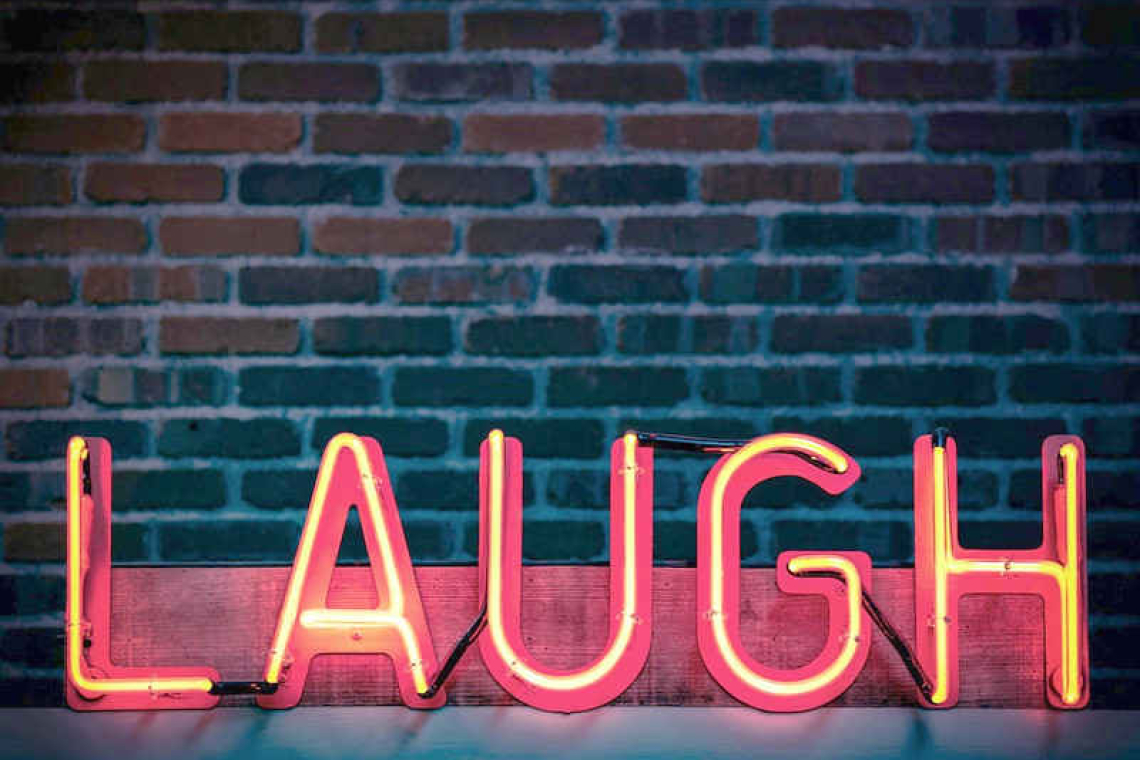By Dr. Colin Michie FRCPCH University of Central Lancashire.
“Any man that can make you laugh, even when you’re feeling down, is a true blessing.” ––Maya Angelou
Maya is right! Along with eating enough vegetables and taking physical activity, a daily laugh can improve your health. Laughter comes from the head, usually from joy or amusement. Physically, it involves at least the lungs, the belly, the heart and – if you are unfortunate – your bladder. Whether it’s a fusillade of giggles, a thigh-slapping hoot or true ROFL (rolling on the floor laughing), this process changes our chemistry.
One of laughter’s powerful effects is that it causes the release of endorphins from your brain and muscles. This inner morphine has many calming, pleasurable and beneficial effects. Endorphins can be made during athletic activities, too, but laughing is so much easier than running kilometres or sweating out in a gym! Jesting or comedy can change your mental state, your mood and your pain threshold for many hours. Laughter reduces adrenaline and cortisol; it affects dopamine metabolism. Functional brain scans show that specific parts of the brain are most active during these outbursts – there is nothing quite like laughter! It is a prevention and treatment, all in one.
Laughter reduces tensions and binds us together, a little like music. Most of us like to hang out with others, having a good time. Although it may seem pointless, laughing plays many roles in our communications. As adults, we are more likely to laugh when in company. Similarly, tickling as play between parents, families and close friends results in laughs. Laughter is found in signed language between those who are deaf. Laughter can spread through crowds at speed, a process developed by entertainers in carnivals, puppet shows, the circus, pantomimes or social media. Infectious laughter can be seen in groups of primates or rodents too – we are not alone in appreciating some communal fun!
A clown’s exaggerated fall can have us laughing at the silly slapstick; a popular leader may create laughs with charisma; an effective teacher may joke with novel ideas. However, just as easily, we may sometimes laugh in mockery, mimicry or with malice. This laughing business extends deeply through our various ways of communicating. It is possible that not all laughter or humour is equally good for us, but this area has not been well studied.
Humour and laughter have become valuable tools in the care of children in hospital. Play and medical clowning as part of a clinic make procedures such as taking blood, changing a dressing, giving anaesthetic or recovering from surgery less traumatic and stressful for most children – and their families. Clowns provide unique skills, taking play to guide patients into a fictional world. They provide joy and spontaneous fun, transporting patients away from the demands of their illnesses. They can improve child sleep on hospital wards and calm frustrated teenagers.
The success of laughter in this situation shows just how anxiety-provoking and nail-biting hospital treatments can be. And it supports medical staff too in their various daily activities! The challenges of working with sick children or patients in intensive care situations, for instance, are often underestimated. Humour is now employed by a range of therapists in health promotion or rehabilitation for all age-groups, particularly for issues that are stress-related. Medical clowns find their work can encourage patients, helping them deal with their emotions to cope with treatments such as surgery, plaster casts, dressings or medication.
Laughter can motivate most of us to detect our health issues early. Checking our breasts, testicles, skin and teeth, for example, improves our health! It also saves involvement with health services. However, many are not keen on self-examination. The use of humour and jokes has been found effective in many cultures in overcoming barriers to taking on this type of public health. In a related challenge, training in hand hygiene during the pandemic improved when humour was used as part of the public messaging.
For older citizens, the use of laughter therapy is growing. Some units have developed laughter clinics and clowning arts to support cognition in dementia care, for instance, or in dialysis delivery. Laughter Yoga and the lion laugh, along with humorous videos, stories and clowns have been used to improve physical activity and so care for chronic diseases.
There is no prescribed dose, or overdose, to laughter and not too many bad reactions to it. Maya Angelou summed this up: “I've learned that people will forget what you said, people will forget what you did, but people will never forget how you made them feel.” Mirth and funniness seem beneficial – have you laughed today? Spread your infectious joy and look at all the funny sides, because when you laugh, the world, your world, is blessed, laughs with you and feels better.
Dr. Colin Michie is currently the Associate Dean for Research and Knowledge Exchange at the School of Medicine in the University of Central Lancashire. He specializes in paediatrics, nutrition, and immunology. Michie has worked in the UK, southern Africa and Gaza as a paediatrician and educator and was the associate Academic Dean for the American University of the Caribbean Medical School in St. Maarten a few years ago.







